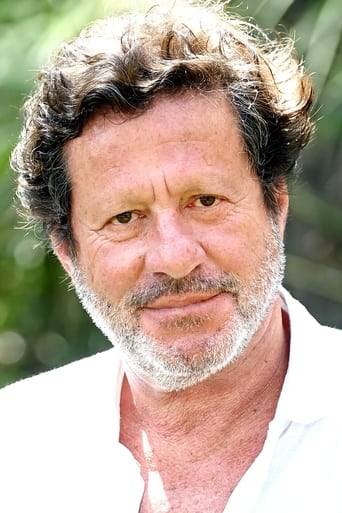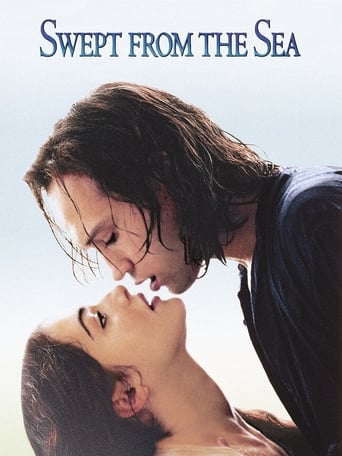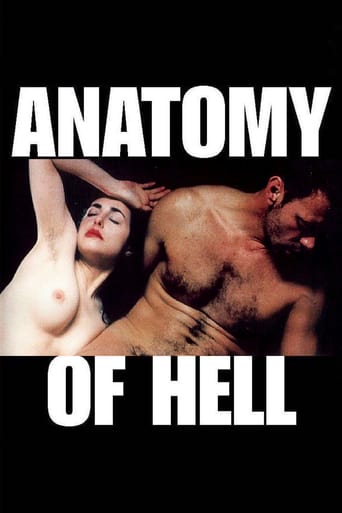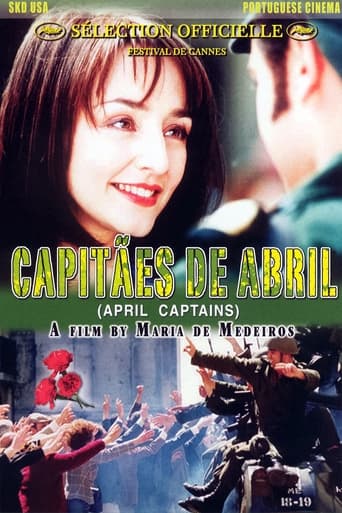
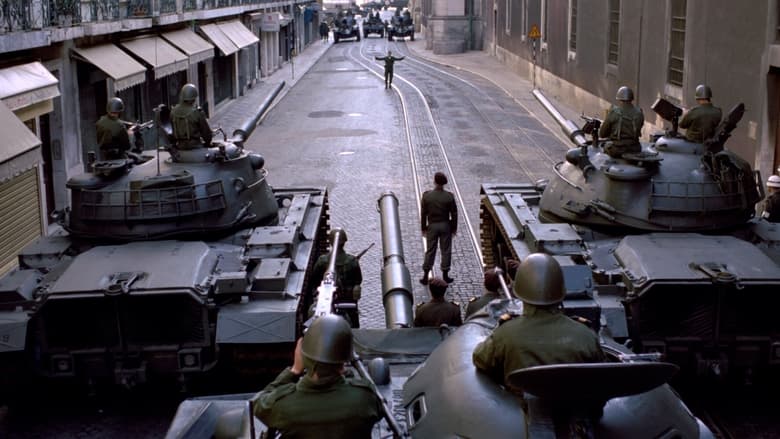
April Captains (2000)
Story of the 1974 coup that overthrew the right-wing Portuguese dictatorship--which continued the fascist policies of long-time dictator Antonio Salazar--and of two young army captains who were involved in it.
Watch Trailer
Cast
Similar titles
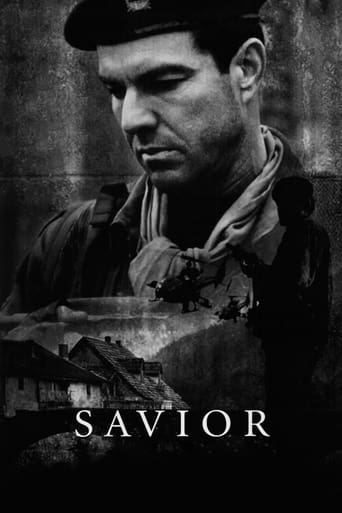

Reviews
Perfect cast and a good story
what a terribly boring film. I'm sorry but this is absolutely not deserving of best picture and will be forgotten quickly. Entertaining and engaging cinema? No. Nothing performances with flat faces and mistaking silence for subtlety.
Very good movie overall, highly recommended. Most of the negative reviews don't have any merit and are all pollitically based. Give this movie a chance at least, and it might give you a different perspective.
One of the film's great tricks is that, for a time, you think it will go down a rabbit hole of unrealistic glorification.
The events that led to the elimination of the long and cruel dictatorship of Salazar in Portugal in April of 1974, are examined in this ambitious film directed by actress Maria de Medeiros. The screen play is a collaboration by Ms. de Medeiros and Eve Deboise. The story is both women's interpretation of what occurred in the country since the director was only 9 years old that fateful April.The film pays tribute to the men that plotted the coup and the way they conducted themselves throughout the ordeal. The "Carnation Revolution", as it was baptized by the media, was an example restraint as there was no bloodshed during the days when it was happening, or in the days following, which brought Portugal to a democracy that had been denied to its citizens by a cruel dictator.The main point of contention with the military men in charge of the coup was to correct the abuses Portugal had inflicted in the colonies in Africa, where they had been responsible for the deaths of countless of natives that wanted to get rid of the invaders. At the same time, many of Portuguese soldiers died during the wars that were waged overseas.The basic problem with the story, the way it's told on the screen, is a weak screen play that doesn't fully make sense of most of what the viewer is watching. If the viewer doesn't have a certain background about what is going on, he will be lost by what the writers of the picture decided to focus the action on. There is also a problem with the action, which at times, has a flat feeling to it that renders some moments as static and meaningless.This film will resonate with Portuguese, of course, because it marked the beginning of the actual democracy. Maria de Medeiros should have served the film better either by staying behind the camera, or letting some other director be in command. Stefano Accorsi, a fine Italian actor, is the best thing in the film as Maia. Joaquim de Almeida's Gervasio is a puzzle at best. When we first meet him, he appears to be in favor of the uprising, then changes his mind, only to come back on board again. This duality in his character doesn't help in the over all narrative. The same go for Frederic Pierrot, who plays Manuel, Antonia's husband. Fele Martinez, the Spanish actor, has little to do.While the film is entertaining, another treatment for the story would have made a better and stronger movie. One wishes Maria de Medeiros to succeed. Perhaps the next time she will be better prepared to give her viewers a tighter and more controlled story.
Probably the first Portuguese film I have seen in my life, and I enjoyed it. The plot is related of how the young army officers took the power in Portugal in 1974, to finally defeat the fascist government of Caetano and to also finalize the wars in the colonies, i.e. Mozambique, Angola, and Guinea (Bissau)- Cape Vert. Most of the events shown in the film reflect with exactitude the behavior of the army officers and soldiers to conduct the coup, of the oppressed people, who were very happy with this new development and the liberty, the resistance of Caetano's men, and also in a subtle way of most conservative officials, including Spinola, who took over as the new president. The Portuguese revolution can be remembered because of the action of several young officers, but for me the most interesting part of the film was when the young captain expressed that Portugal should develop itself democratically, and this is what the country achieved some years after this coup or revolution. The film also shows that the army officers and soldiers never wanted to kill anyone; even the most serious enemies were respected at the end.
Okay, I'm not going to critique this film in depth. I note the many elogious reviews in advance of me, and as I generally like Maria de Medeiros, I have been long hesitant to make a disparaging comment - and in such fashion nearly a year has passed. But each time I see that DVD on my shelf, I sense an inner groan. Anyway, let the elogious voices override me! But for other cinephiles like me - beware.Expressed in simplest and gentlest terms, here's my stance: The political turmoil and overthrow providing the backdrop for this film also served as a backdrop for a certain period of my life - via newspapers I read daily in my local middle-European pub. At that time, I followed the newsreports, but never fully grasped what the heck was transpiring. The reporters tended to report either in non-partisan terms, or with a conservatism which frowned upon any groups disturbing the peace or fomenting rebellion against the establishment. Those were times when other winds of unrest swirled through Paris, Berlin, Prague, and various places in the U.S., all of whose issues I understand clearly at the time - but dictatorship or not, my papers tended to treat the govermentment of Portugal simply as the establishment - not as a well-fleshed out "evil empire", to use flippant Star War terms.So, week after week, I read of disturbances, but never found an intelligent editorial that might provide the history behind them, or evaluate the practices and social-economic impacts of the dictatorship, etc.So, in purchasing this film, I had at least two hopes: to finally understand the details leading up to the social unrest, and to enjoy a well-conceived drama. This film gave me neither.The film presupposes that viewers already have ample knowledge and deep emotions regarding the historical facts. And the drama - well, as I said, I want to encourage Maria de Medeiros and the Portugues film industry, but - it was trite and shallow.I obtained my copy of the DVD from France - "Selection Official Cannes 2000 - Un Certain Regard". The box shows smiling clean-shaven actors, the lead giving the victory sign in a fashion that reminds me more of the Playboy bunny. After seeing the work, I wondered what the French could have thought of it - though as a shallow piece of "cinema verite'" with sensitive ethnic content, I can understand their natural inclination to praise it for its "honesty" but...Look at the back of the box: "Un regard chaleuruex sur la Revolution" - a warm regard? Try describing Allende's overthrown and murder with a a "warm regard"! Try it with Czechoslovakia in 1968! Try it with the whole line-up of overthrows, and civil rebellions!Another review: Maria de Medeiros a renoue' avec son pays, son enfance et son histoire." Rubbish, rubbish, rubbish! At least for me. I love Portugal. In all of Europe, Lisbon, Barcelona and Prague are my favorite cities. But my love for a city and a country doesn't flesh out a vacuous film. I'll hang on to my ancient VHS tapes of Capas Negras and A Cancao de Lisboa - meanwhile, I'm stuck with a zone 2 by the above title that might as well go in the trash.
For her feature directing debut, Maria de Medeiros ("Pulp Fiction", "Henry and June") has certainly taken on a big story: the Portuguese Revolution of the 25th of April 1974. However, the film isn't a history lesson; rather a fictional story that introduces fictional characters and situations into the actual historical facts and places of the day, alongside some of its real protagonists. It's basically a schoolboy comic-book adventure, full of naive heroics and larger-than-life moments, quite well played and adroitly directed; the script is the weakest link, fanning out into a number of parallel stories some of which are rather pointless. The film exudes the contagious energy and juvenile joy of actually living out an adventure (although one might point out that no, the actual Revolution was not an adventure!), and it's precisely that schoolboy-adventure side that, along with its no-nonsense storytelling which adheres relatively faithfully to the actual run of events, is enough to recommend it. .


